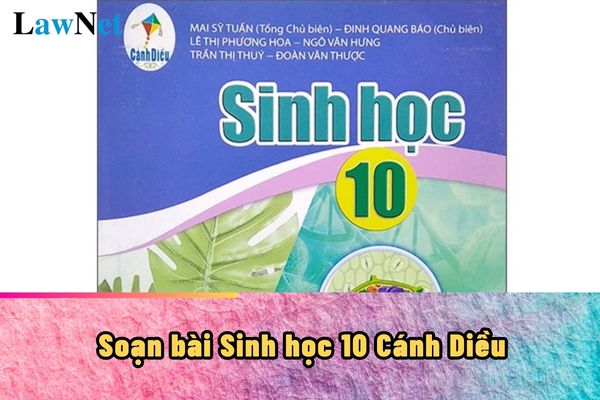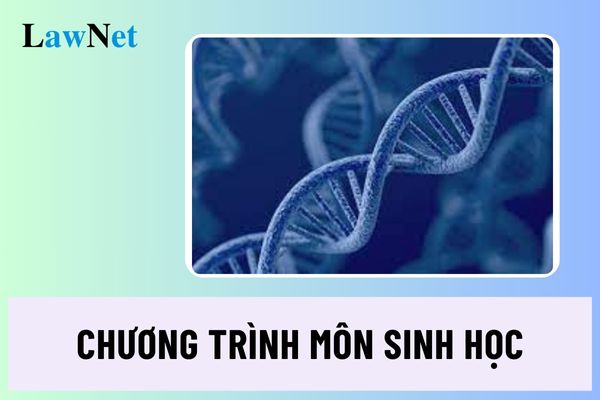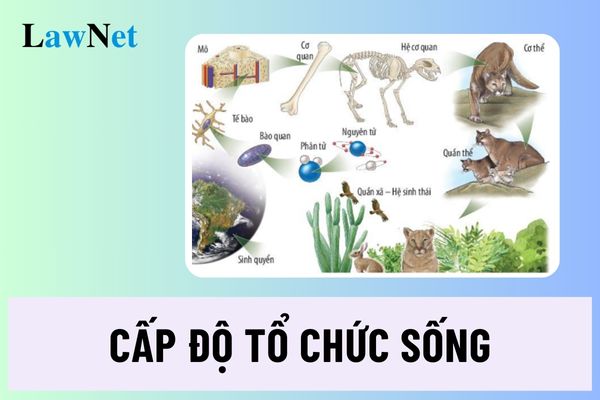Preparation of lesson plan for Chapter on Overview of cells for "Canh Dieu" Biology program for grade 10 in Vietnam
Preparation of lesson plan for Chapter on Overview of cells for "Canh Dieu" Biology program for grade 10 in Vietnam
According to Section 5 of the Biology Education Program issued with Circular 32/2018/TT-BGDDT, the study of cells in biology is one of the core contents that students need to learn. To be specific:
Core Education Content
The core education content of Biology encompasses levels of living organization, including: molecules, cells, organisms, populations, communities - ecosystems, and biosphere. The knowledge of each level of organization includes: structure, function; the relationship between structure, function, and environment. From the knowledge of these levels of living organization, the subject program outlines general characteristics of the living world such as: metabolism and energy transformation, growth and development, reproduction, response, heredity, variation, and evolution. Through content topics, the subject program presents biotechnological achievements in breeding, cultivation, environmental pollution treatment, agriculture and clean food production; in medicine and pharmacy.
Refer to the preparation of the overview of cells in "Canh Dieu" Biology program for grade 10 below:
| Part 1. Overview of Cell Theory Part 2. Cells as Functional Units of the Organism After completing the theory part, students need to answer the following questions Question 1 Page 23 Biology program for grade 10: What tools are often used to observe cells? Why? Answer: - To observe cells, we often use microscopes. - Explanation: Cells are small in size, typically not observable with the naked eye, so they are often observed with a microscope. Question 2 Page 23 Biology program for grade 10: Present the content and significance of cell theory? Answer: - Summary content of cell theory: + All living organisms are composed of one or more cells. + The cell is the basic unit of life. + Cells arise from pre-existing cells. + Cells contain genetic material; genetic information is passed from one cell to another during cell division. + Cells are composed of similar chemical components. + Metabolism and energy conversion processes occur within cells. + Cell functions depend on the activities of the organelles within the cell. The coordination of these organelle activities characterizes the cell as a system. + The activities of a living organism depend on the coordinated activities of its cells. - Significance of cell theory: + It changed the understanding of scientists at that time about the structure of living organisms. + It guided research development on cell functions and organisms. Exercise 1 Page 23 Biology program for grade 10: Present the history of the development of cell theory .... Answer: - I agree with the opinion "The history of cell research is intertwined with the history of microscope development." - Explanation: The history of microscope research and development has facilitated cell research. Specifically: + In the 1660s, through a primitive homemade microscope, Robert Hooke observed the shape of cells in thin slices from the cork of an oak tree. + In the 1670s, Antonie van Leeuwenhoek discovered bacteria and protozoa. + Later, advancements in lens and microscope manufacturing allowed other scientists to see different components within cells. Part 2. Cells as the Structural and Functional Units of Living Organisms Question 3 Page 24 Biology program for grade 10: Name the types of cells you have learned about .... Answer: Types of cells I have learned: - Prokaryotic cells (bacterial cells) - Eukaryotic cells (plant cells and animal cells) Question 4 Page 24 Biology program for grade 10: Provide examples proving that cells are the sites of living activities .... Examples proving that cells are the sites of living activities such as metabolism, growth, development, reproduction: - Example proving that cells are the sites of metabolic activities: In humans, cells receive oxygen from blood vessels to perform cellular respiration, breaking down glucose to produce energy, and carbon dioxide produced from cellular respiration is transferred to the blood to be expelled from the body. - Example proving that cells are the sites of growth, development, reproduction: In humans, through metabolism, cells aggregate materials to grow and divide. The growth and division of cells provide the basis for the organism's growth, development, and reproduction. |
Information is for reference only./.

Preparation of lesson plan for Chapter on Overview of cells for "Canh Dieu" Biology program for grade 10 in Vietnam (Internet image)
General Orientation of "Canh Dieu" Biology program for grade 10 in Vietnam?
Based on Section 6 of the Biology Education Program issued with Circular 32/2018/TT-BGDDT stipulates as follows:
The teaching method of Biology is implemented according to the following general orientations:
- Promote the active, proactive, and creative nature of students; avoid one-way imposition, rote memorization; focus on developing students' self-discipline and self-study capabilities so that they can continue to explore, expand their knowledge, and further develop necessary qualities and competencies after graduating from high school.
- Practice applying biological knowledge to identify and solve practical problems; encourage and create conditions for students to experience and create by organizing them to participate in learning activities, explorations, and applications.
- Flexibly and creatively apply teaching methods suitable to the educational goals, content, student audience, and specific conditions. According to the required objectives, teachers can use a combination of various teaching methods within one topic. Traditional teaching methods (lecturing, discussion,...) are applied to promote students' active and proactive participation.
Enhance the use of modern teaching methods that emphasize the active role of students (practical teaching, problem-solving based teaching, project-based teaching, experiential teaching, differentiated teaching,... along with appropriate teaching techniques).
- Teaching forms are performed diversely and flexibly; combining individual learning, group learning, classroom learning, contract learning, flipped learning, online learning,... Enhance the usage of information technology and communication in biology teaching.
Value outside textbook resources and the system of teaching devices; fully utilize the advantages of information technology and communication in teaching through knowledge repositories, multimedia, and increase the use of electronic resources (such as experimental films, virtual experiments, simulated experiments,...).
- Integrative teaching through topics connecting various knowledge areas. When teaching these topics, teachers need to create situations that require students to apply knowledge and skills to solve cognitive, practical, and technological issues.
Assessment Forms After Completing Biology program for grade 10 in Vietnam
Based on Section 7 of the Biology Education Program issued with Circular 32/2018/TT-BGDDT stipulates the assessment forms after completing Biology program for grade 10 as follows:
- Assessment through written assignments: essays, objective multiple-choice tests, essays, collection reports, research reports, investigations,...
- Assessment through oral questioning, presentations: answering oral questions, interviews, presenting research issues,...
- Assessment through observation: observing students performing practical experiments, group discussions, field studies, visiting scientific and production facilities, participating in research projects,... using observation forms, checklists, learning portfolios,...






- What are procedures for withdrawal from the Vietnam Association for Promoting Education?
- All contents of the Literature subject for grade 10 students in Vietnam
- Who are eligible for lunchtime support policy for preschool children in Vietnam?
- What are procedures for awarding the title of Honorary Doctorate to teachers in Vietnam?
- Are students who receive state scholarships to study abroad required to reimburse training costs when they do not return to Vietnam to work for authorized state agencies?
- Formula for calculating the area of a circle in the grade 5 curriculum in Vietnam
- Is there a limit on the number of students undertaking scientific research projects in Vietnam?
- According to the 2018 General Education Program, how is physics education implemented at three educational levels?
- Sample speech on the Mid-Autumn Festival in 2024 in Vietnam
- What are regulations on the knowledge of Literature for all levels in Vietnam?

